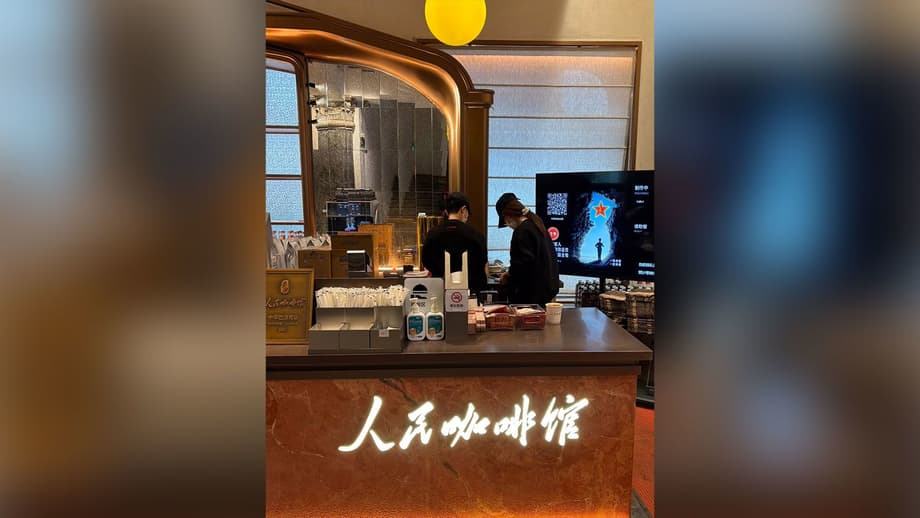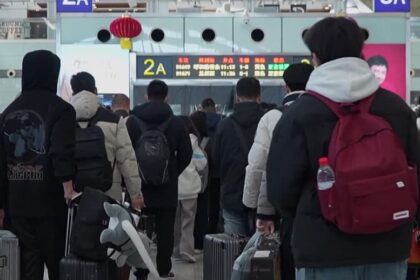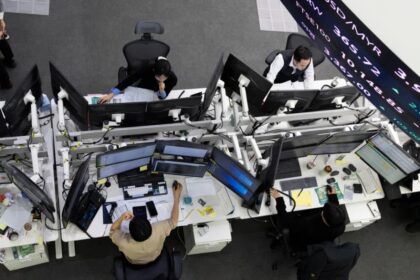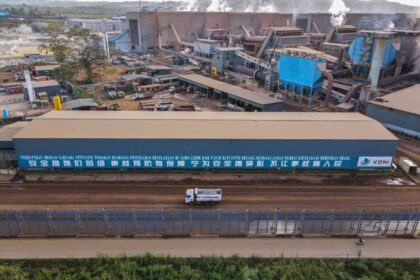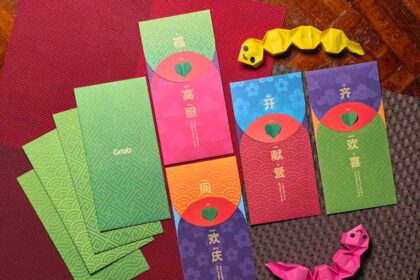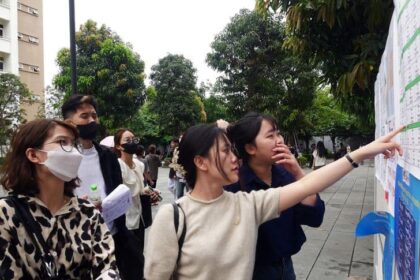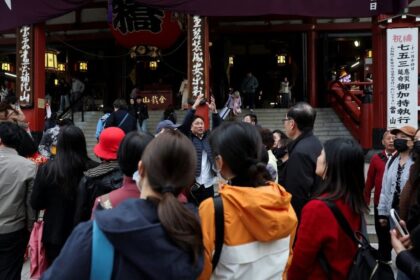A branding play that hit a political tripwire
A cafe brand that leaned heavily on patriotic aesthetics has pulled back after a storm of criticism inside China. People’s Cafe, a small but fast growing chain with around 30 outlets, apologized and said it will change how it presents itself in mainland stores after China’s most prominent party newspaper condemned its use of a politically charged word. The shops are painted bright red and often display a star on the facade, a look that echoes Communist Party imagery. Signage used a typeface inspired by Mao Zedong’s handwriting and the marketing line Tell China’s story with coffee appeared on walls. Some drinks even arrived at the counter with the word China dusted on the foam.
- A branding play that hit a political tripwire
- Why is the word people so sensitive in China
- From patriotic aesthetic to online backlash
- What the company says and what changes now
- What Chinese rules say about names and symbols
- The coffee boom that set the stage
- Patriotic marketing and the line brands must not cross
- Branding misfires are not unique to China
- What to Know
After days of online debate and pointed commentary in state media about the so called gimmick economy, the operator said it would restore the company’s full registration name, Yao Chao People’s Cafe, at mainland locations. Stores in Hong Kong, Macao, and overseas will keep the People’s Cafe brand. The quick course correction shows how branding in China can collide with political language and the symbolism that surrounds it.
Why is the word people so sensitive in China
At the heart of the dispute sits a single term. The word people, renmin in Mandarin, carries official weight in China. It appears in the country’s formal name, the People’s Republic of China, and in major institutions, from the People’s Liberation Army to the currency, the renminbi, and the party’s flagship newspaper, People’s Daily. It is a word of state identity and public ownership, not a simple adjective for commercial appeal.
In an editorial response to the cafe’s branding, People’s Daily explained why this particular language cannot be treated as a playful hook for sales.
The term carries a distinct public character and profound political connotations and must not be profaned, nor can it be misused.
That argument mirrors a broader push in Chinese media and regulation to discourage the gimmick economy, a shorthand criticism for marketing stunts that chase attention with provocative imagery or slogans. When a campaign borrows from party iconography or national ideals, companies risk a backlash that can grow quickly across social platforms and then find support in official commentary.
From patriotic aesthetic to online backlash
People’s Cafe built its identity around a vivid, patriotic theme that seemed designed to stand out on busy streets and feeds. Photos that circulated online showed red walls, star motifs, and latte tops dusted with China. For some passersby the look read as a creative nod to national pride. For other viewers it appeared to cross a line, tapping into a word and a style closely tied to state power and collective identity to sell drinks.
The social media reaction reflected that split. One user on Weibo wrote, It is just a cafe, but it touched a very sensitive word. Another asked whether using politically charged terms in a commercial brand might violate regulations. Memes compared the cafe’s name to formal state institutions like the People’s Bank of China, while others joked the storefronts looked like a government office that happened to sell espresso.
By the time People’s Daily weighed in, the debate had already given the brand an avalanche of attention, but not the kind that converts to trust. The message from the party paper hardened the narrative: the problem was not design taste, it was language with public meaning being used in a private marketing pitch.
What the company says and what changes now
The brand is operated by Yao Chao Shanghai Cultural Communication Co., which issued a public apology and said it would revise the name on the mainland. The company acknowledged that the current presentation had caused discomfort among some customers and said it would return to a registered form of the name inside China.
We extend our sincerest apologies to every customer who felt uncomfortable. After careful reflection, we have decided to restore the original full name Yao Chao People’s Cafe for all mainland stores.
Company statements indicated the change covers nearly 30 outlets across 18 provinces, reflecting a footprint that grew quickly in a market hungry for new coffee options. Locations in Hong Kong, Macao, and other international markets will continue to trade as People’s Cafe. The brand’s social posts suggested the switch would be swift, a sign of how seriously Chinese companies take these moments once official voices step in.
What Chinese rules say about names and symbols
Chinese regulators keep a close eye on how companies use national symbols and words linked to the state. Advertising law restricts commercial use of the national flag and other emblems, and business naming rules give extra scrutiny to terms like China or national and references that might imply a connection to state organs. A firm that selects politically loaded language for a brand can draw review by local market regulators and risk forced changes if officials judge the name misleading or inappropriate.
None of that means a violation has occurred every time a patriotic theme appears on a storefront. Enforcement tends to be case specific and is often triggered by public complaints and media attention. In the People’s Cafe case, the company acted before any penalty became public, indicating that reputational risk and the prospect of formal scrutiny were enough to prompt a retreat.
The coffee boom that set the stage
The controversy landed in a market that has transformed at speed. Coffee consumption in China has been rising for years, and the last two have seen a surge in new outlets as domestic players push into smaller cities and challenge global incumbents on both price and convenience. Budget friendly lattes, seasonal tie ins, and relentless store openings have trained consumers to expect novelty and value.
Local chains such as Luckin Coffee and Cotti Coffee have led price wars and introduced waves of limited time flavors aimed at younger customers. Independent concepts, from boutique roasters to themed cafes, have also multiplied. People’s Cafe fits into that second group, a smaller brand built on a narrative and a visual identity designed to be instantly shareable.
Foreign brands are navigating this shift. A premium image that once felt aspirational now competes with aggressive local pricing and dense store networks. Company announcements in recent weeks stated that Starbucks would sell a controlling stake in its China business to a local investment firm, a sign of how rapidly dynamics are changing in the world’s second largest economy for coffee shops. The direction of travel favors nimble operators with sharp positioning and strong execution.
Patriotic marketing and the line brands must not cross
Chinese consumer marketing often weaves national pride into campaigns. Red color palettes, five pointed stars, and taglines about serving the people have appeared in product launches and pop up events for years. Many efforts draw praise, especially during national holidays. The boundary problem appears when brand language or design echoes state authority too closely or treats a political term as a playful prop for sales.
People’s Daily captured that caution plainly while responding to the cafe story.
Marketing can be creative, but it must not cross the bottom line.
That framing leaves companies room to celebrate national themes, but it signals that words with public ownership carry special care. When a campaign veers into that space, backlash can build quickly, and a prompt change may be the only workable exit.
Branding misfires are not unique to China
Companies around the world face backlash when a logo, name, or theme collides with public sentiment. A United States restaurant chain recently tried a stripped down logo after decades with a familiar emblem and drew a storm of criticism, a slide in market value, and charges that the brand had lost its identity. The messaging that followed read to many as a non apology, which kept the story alive for days.
Food culture can be even more sensitive. In New York, a Chinese style restaurant opened by a white owner advertised clean food and contrasted it with tired stereotypes about Chinese American cuisine. The response from the Asian American community was swift and intense, and the business shut within months. What the owners saw as a healthy twist came across as trading on a culture while belittling it.
Elsewhere in the region, a playful naming stunt caused a bureaucratic headache. In Taiwan, a sushi promotion prompted hundreds of people to legally change their names to Salmon to claim a free meal for their whole table. Many switched back after the event ended, but a handful later discovered they had reached the limit on legal name changes and needed lawmakers to debate workarounds. The episode was comic and chaotic, yet it showed how far some people will go for marketing rewards, and how rules that seem peripheral can become headlines.
What to Know
- People’s Cafe apologized after Chinese state media criticized its use of the word people, renmin, and said mainland stores will use the full name Yao Chao People’s Cafe.
- Overseas branches, including Hong Kong and Macao, will keep the People’s Cafe brand for now.
- People’s Daily argued that people is a political term with public ownership and should not be used as a commercial gimmick.
- Social media reaction included support for the change and questions about whether the original branding might violate regulations.
- Chinese rules give extra scrutiny to names and symbols that suggest a link to the state or national identity.
- The cafe’s rise came amid a coffee boom led by domestic chains that compete aggressively on price and scale.
- Global brands face pressure in China, and recent company statements said Starbucks would sell a controlling stake in its China business to a local investor.
- The case shows how patriotic marketing can boost visibility while risking a swift backlash if it strays into political language.


